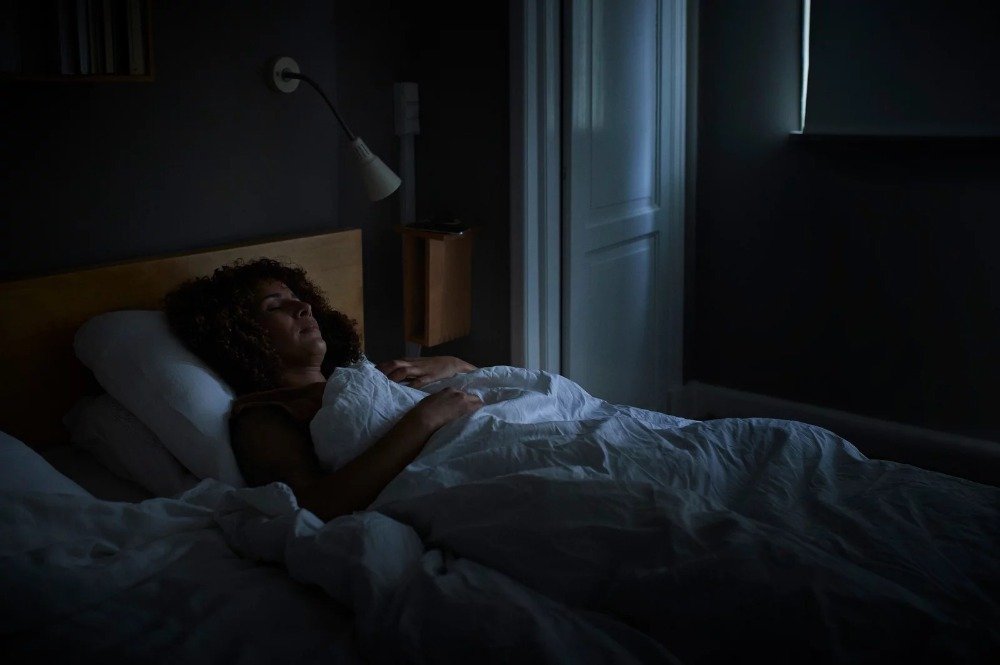How Light Pollution Wrecks Your Health
A dark sky, free from light pollution, is essential to your health.
As humans, we rely on natural light cues, such as the daily cycle of light and dark, to regulate our biological processes. This is known as the circadian rhythm, which influences behaviors such as sleep patterns. Artificial light at night disrupts these natural rhythms and can have detrimental effects on our behavior and physiology.
Your skin senses light
Humans have a natural ability to sense light even when their eyes are closed while sleeping. This is because the human body has an internal clock, also known as the circadian rhythm, which regulates various physiological processes, including the sleep-wake cycle. The circadian rhythm is influenced by environmental cues, such as light and darkness.
Even with closed eyes, the human skin, particularly on the face and eyelids, contains light-sensitive cells called melanopsin-containing retinal ganglion cells. These cells are responsible for detecting light and sending signals to the brain to regulate the circadian rhythm. When these cells are exposed to light, even at low levels, they can send signals to the brain to inhibit the production of the sleep hormone melatonin, which helps regulate sleep.
Sleep in the dark
So, exposure to artificial light at night, even when the eyes are closed, can still have an impact on the quality of sleep and disrupt the natural sleep-wake cycle. This is why it is important to create a sleep-friendly environment with minimal artificial light at night to support healthy sleep patterns and overall well-being. Making sure you're not exposed to outdoor lighting and avoiding the use of electronic devices with bright screens before bedtime are some strategies that can help minimize the impact of light on sleep, even with closed eyes.
Avoid getting sick
Disrupted sleep patterns can lead to a range of health issues. Chronic sleep disruption has been linked to various physical health problems, including an increased risk of obesity, diabetes, cardiovascular diseases, and even certain types of cancer. It can also impact cognitive function, mood regulation, and mental health, leading to issues such as impaired concentration, memory problems, mood disorders, and increased risk of depression and anxiety.
By preserving dark skies and reducing light pollution, we can help protect the natural light-dark cycle and support healthy sleep patterns. Here are some steps to staying healthy:
Do an outdoor home assessment. Walk the perimeter of your house and then walk a few houses away. Do you see any outdoor lights bleeding into your or your neighbor's indoor spaces? Talk to your neighbor. Do you notice any interior lights excessively bleeding into the yard? If so, adjust accordingly.
Do an indoor inventory of lights. Walk through your home and make note of how many lights have color temperatures that are over 4000K (see Kelvin Temperature Scale below). Shift to using a warm light source, preferably under 3000k. Also make note of the inside location of the lights you identified as excessive bleeders on your outdoor assessment walk.
Use dim red or amber lights for night lights. The light is less likely to shift circadian rhythm and suppress melatonin.
Avoid looking at bright blue-light screens beginning two to three hours before bed.
If you work night-shifts or use a lot of electronic devices at night, consider wearing blue-blocking glasses or setting your screens to warm-toned lighting.
Switch your phone light to the warmer end of the color spectrum at sunset.
Additional Reading
Light and sleep by the Sleep Foundation
Effects of artificial light at night on human health | peer reviewed journals and articles
More info on the importance of dark skies is available at Darksky.org. Check back tomorrow for night four of Dark Sky Week.

